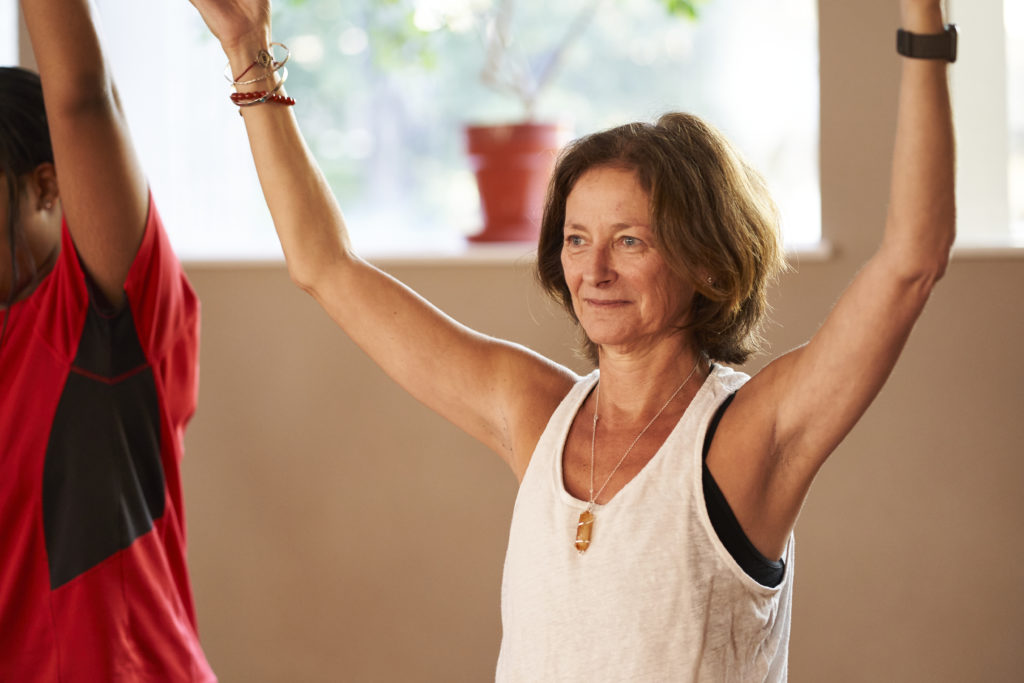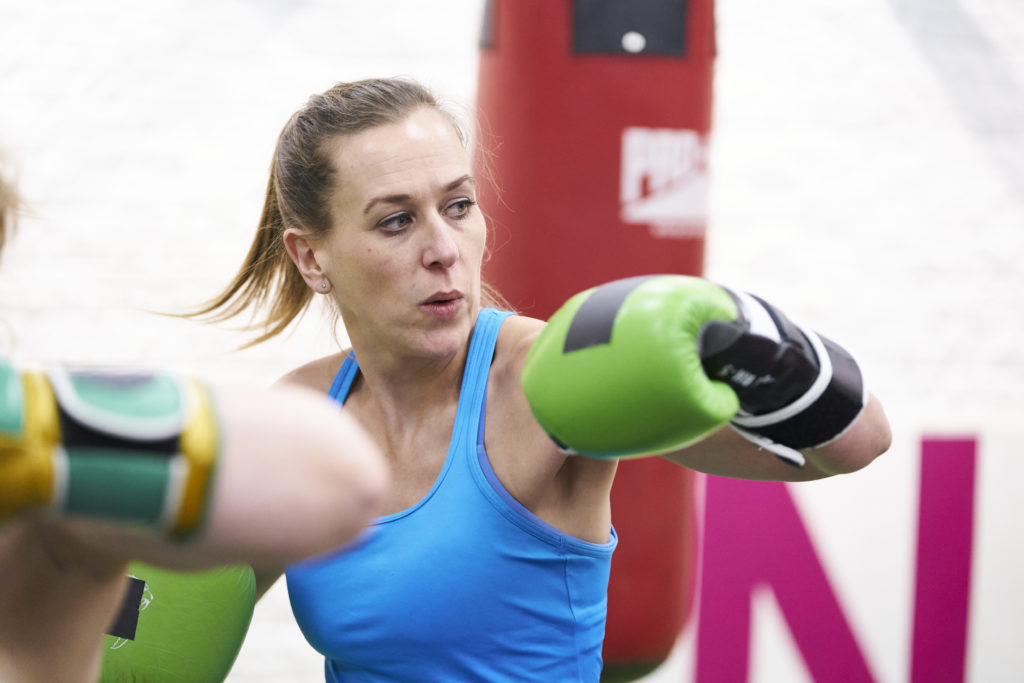
Menopause symptoms range from mild to severe, and everyone experiences them differently. Typically, menopause starts between the ages of 40 and 60, although symptoms may begin years before the onset of menopause due to changes in hormone levels.

Symptoms
According to the NHS, around 8 in every 10 women experience menopausal symptoms and these last on average 4 years. Below is a list of commonly experienced symptoms.
- Changes to the pattern of your period
- Hot flushes
- Headaches
- Night sweats
- Difficulty sleeping
- Memory and concentration problems sometimes referred to as brain fog
- Reduced muscle mass
- Low mood, anxiety and mood changes
- Reduced libido
- Vaginal dryness
- Recurrent urinary tract infections
- Palpitations

Using exercise as a tool to help manage menopause
Exercise can naturally help control the symptoms of menopause and complement other forms of treatment.
Adults of all ages can benefit from meeting the recommended activity guidelines. Getting 150 minutes of moderate activity a week (or 75 minutes of vigorous activity) will help reduce the risk of stroke and heart disease.
Happy hormones
Reaching the recommended levels of activity will help to improve low mood and reduce anxiety. Physical activity helps us produce more of the happy hormones dopamine and serotonin. In turn, dopamine and serotonin improve sleep, memory function, digestion and help you feel great post-workout! Exercising will also boost your endorphins which act as a natural pain reliever. Finding a style of activity that you enjoy is essential to staying motivated.
If you are usually the first on the dance floor, a dance fitness class may be just the perfect fit. If you find yourself craving some time to reflect on your day, try a more mindful yoga or tai chi class. Explore local and virtual group exercise classes here.

Muscle mass and bone density
To counteract the loss of muscle mass that occurs during menopause, strength training is key. Don’t worry, you won’t end up looking like the hulk! By introducing two short sessions of bodyweight exercises a week, you’ll improve your muscle strength and bone density (the risk of osteoporosis increases post-menopause). These could be lunges, squats or push-ups.
You could also add weights to your routine. If you aren’t sure where to start, an online class where you will be guided through exercises by an instructor can help you build confidence. Don’t have weights at home? Grab a couple of tins of beans or two bottles of water to add some gentle resistance to your activity.
Manage weight
Maintaining a healthy weight can become more difficult during menopause (no thanks to those pesky hormones!). Cardiovascular exercise is anything that increases your heart rate. For instance, walking, jogging, swimming and even activities such as gardening can help cut (see what we did there) your risk of heart disease and manage any unwanted weight gain.
If you are experiencing menopausal symptoms and wish to find more information, MenoHealth can help. MenoHealth has created a community called MenoSisters that provides peer connection and support.

